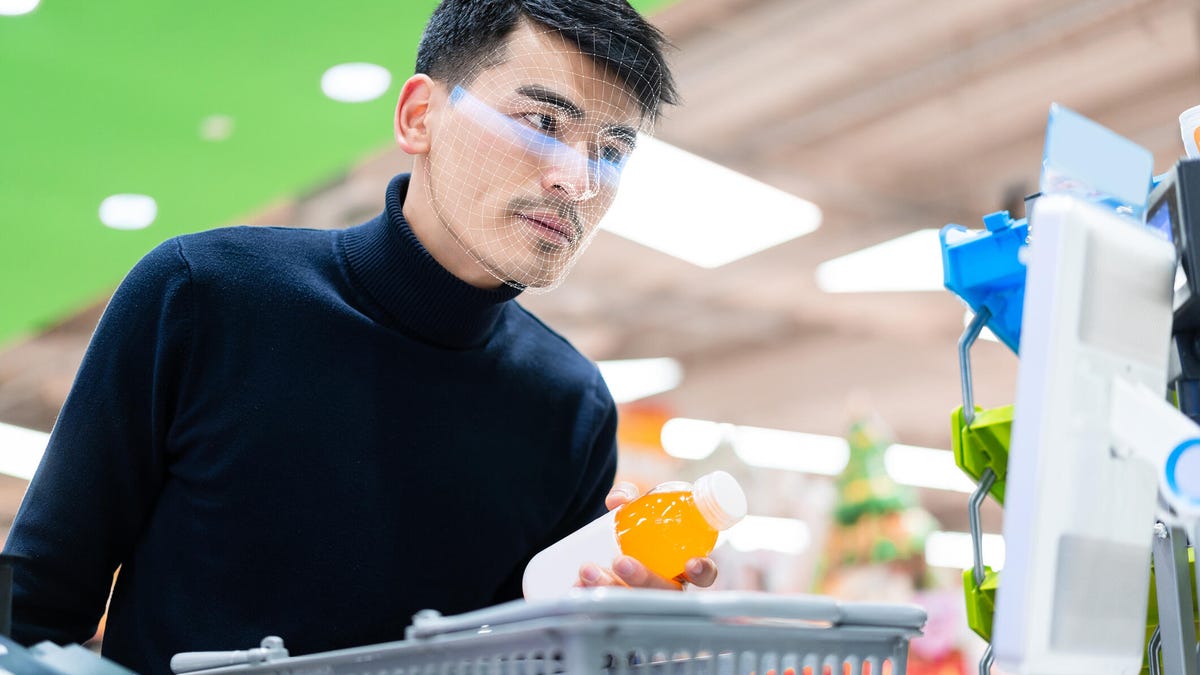 Why You Can Trust CNET
Why You Can Trust CNET Portland, Oregon, passes toughest ban on facial recognition in US
The ordinance outlaws the use of facial recognition not only by government agencies, but also by private businesses.

Under Portland's ordinance, private businesses will be banned from using facial recognition.
The city council in Portland, Oregon, on Wednesday passed the strongest ban on facial recognition in the US, blocking use of the technology by private businesses as well as government agencies in the city.
Portland's ban on facial recognition isn't the first, but it's the strictest. Cities like San Francisco, Boston and Oakland, California, have all passed legislation banning just government agencies from using facial recognition.
The bill passed unanimously, and the ban will take effect in January 2021.
It means that along with police officers being banned from using facial recognition to identify potential suspects, stores and businesses won't be able to use the technology either. An Oregonian report in February detailed how a Portland convenience store used facial recognition to allow entry and identify shoplifters.
The ban will also extend to facial recognition at airports, where airlines like Delta use the technology for boarding.
"All Portlanders are entitled to a city government that will not use technology with demonstrated racial and gender biases that endanger personal privacy," Portland Mayor Ted Wheeler said at Wednesday's City Council meeting.
The commercial ban on facial recognition signals a potentially larger move to outlaw the technology beyond police use. While companies like Amazon and Microsoft have paused their facial recognition work with police because of ethical concerns, the technology is still being used by businesses, which can provide that data to law enforcement agencies.
In July, the Electronic Frontier Foundation found that San Francisco police used a downtown business district's camera network to monitor protesters, blurring the line between public and private surveillance.
Researchers have frequently found racial and gender bias issues with facial recognition algorithms, regardless of who's using the technology. Detroit's police department has admitted that its facial recognition misidentifies people "96% of the time," with the technology leading to wrongful arrests on multiple occasions.
Amazon spent $24,000 lobbying against Portland's legislation, but declined to comment on its opposition to the facial recognition regulations. The company referred to its past remarks calling for facial recognition legislation at the federal level, where it's spent more than $14 million in lobbying.
Private businesses often have lower thresholds for accuracy than government agencies do. Amazon recommends that law enforcement agencies use a 99% confidence threshold for its facial recognition algorithm, but not private businesses.
Private businesses also don't have rules or standards to prevent the abuse of facial recognition. You could be banned from visiting a store and never know that it's because the facial recognition system misidentified you as a shoplifter.
Bans on facial recognition have come city by city, while some federal lawmakers are looking to pass national legislation on the technology. Most of the legislation proposed in the last year has been focused on public use of facial recognition rather than on use by private businesses.
In March 2019, two senators proposed the Commercial Facial Recognition Privacy Act, which would prevent companies from collecting facial recognition data on people without their consent.
The decision of Portland's city council goes beyond limiting the technology by fully outlawing it.
"This is the first of its kind legislation in the nation, and I believe in the world," Wheeler said. "This is truly a historic day for the city of Portland."
The mayor added that he hopes this legislation will inspire other cities to impose tougher regulations against facial recognition. Privacy advocates who supported the ban in Portland agreed.
"Now, cities across the country must look to Portland and pass bans of their own," Lia Holland, an activist with the digital rights group Fight for the Future, said in a statement. "And, Congress should act to pass bans at the federal level. We have the momentum, and we have the will to beat back this dangerous and discriminatory technology."
The ordinance bans both government agencies and private businesses from using facial recognition in Portland, with exceptions for individual use like unlocking your own phone or using a face filter on a social media app.
Companies that violate the ban are liable to lawsuits and may be required to pay $1,000 a day for each day of the violation, according to the legislation.
"We are a pro-technology city, but what we've seen so far in practice with this technology, it continues to exacerbate the overcriminalization of Black and Brown people in our community," Commissioner Jo Ann Hardesty said. Hardesty said facial recognition won't be used in the city until problems are addressed and the fixes have been verified by independent sources.

